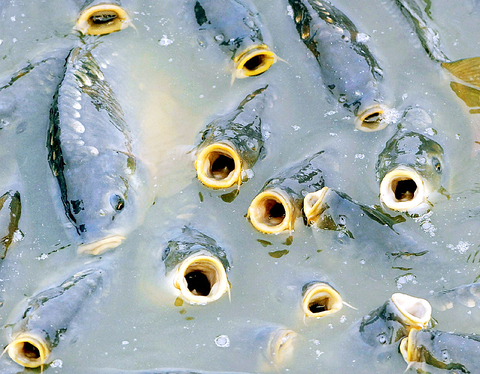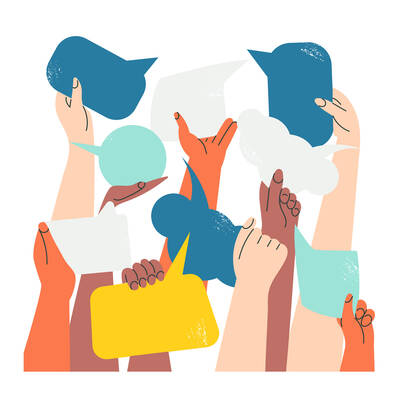Have you ever seen a fish make this face?
If you see it on a human, it might mean they want to be kissed. Or, if that person is in the water like these fish are, it might mean they are trying to breathe.
But fish don't breathe air, and they don't use their mouths to breathe.

Fish breathe underwater, through slits on the sides of their bodies called gills.
Maybe these fish want to kiss the person taking their picture, but probably not. Fish usually make this face when they are hungry and they think there is food nearby.
Next time you're hungry, try making this face and see if it works!

It often starts with a text message asking if you are available on weekends, looking for a part-time job or you get a simple “hello” from an unknown number. Halfway across the world, a laborer is usually pulling in 12-16 hour days, sending non-stop messages, hoping someone will take the bait. The ultimate goal is always to take your money — victims have lost tens of billions to scams and hundreds of thousands of people are in forced labor to keep the schemes going. These workers are often housed in massive complexes scattered across Southeast Asia, where the industry has flourished. Here

Have you ever argued with your parents about politics, news or social issues? Maybe you think their opinions are outdated, while they claim you have been brainwashed by the Internet. The truth is, neither of you is wrong. You’re simply living in different “filter bubbles,” seeing entirely different versions of reality. A filter bubble forms when Web sites use algorithms to predict what content you want. Based on the videos you watch on YouTube, the TikToks you linger on or the articles you click, the system feeds you more of the same. Before you know it, you’re stuck in

Small talk is a lighthearted form of communication meant to facilitate interaction between strangers. These brief exchanges often serve as a gateway to a more significant conversation. Frequent topics include the weather, sports, and the latest TV shows. However, many people are __1__ small talk, and the thought of having to engage in it fills them with anxiety over how to respond. While it may seem a waste of time to some, there are benefits to participating in this social ritual. Research has shown that friendly exchanges with strangers can __2__ and decrease feelings of isolation. This is especially

1. 她把畫掛在書房牆上。 ˇ She hung the picture on her study wall. χ She hanged the picture on her study wall. 註:hanged 是 hang(吊死,絞死)的過去式。hang 作「掛」解時過去式是 hung,過去分詞也是 hung。 2. 他失去平衡,跌倒在地。 ˇ He lost his balance and fell down. χ He lost his balance and felled down. 註:felled 是動詞 fell 的過去式,作「砍倒」解,是及物動詞。這裡作「跌倒」解是 fall,過去式是 fell,過去分詞是 fallen。 3. 我剛才把照相機放在桌上。 ˇ I laid the camera on the table a moment ago. χ I lay the camera on the table a moment ago. 註:從句義可以看出動詞須用過去式「將…放、置」,動詞現在式是 lay,過去式和過去分詞都是 laid:lay, laid, laid;但 lay 也是 lie 的過去式,作「躺」解:lie, lay, lain,是不及物動詞。 注意:兩個形同義不同的 lay,不要用錯。 4. 他去過韓國。 ˇ He has been to Korea. ˇ He visited Korea some time ago. χ He has gone to Korea. 註:He has gone to Korea. 是「他已經到韓國去了」,指目前人已在韓國或在赴韓國的途中。表示「過去曾去過某處」,應用 have/has been,或用動詞的過去式和表示過去時間的副詞來表達。 5.